History shows party conferences can make or break a leader
Conferences can refocus governments or mercilessly expose incompetence, writes Sean O’Grady. As this year’s season kicks off, leaders will have to be vigilant to escape the curse of colleagues on manoeuvres, mutinous delegates, and even – as Theresa May found out – having their voice become a dry croak

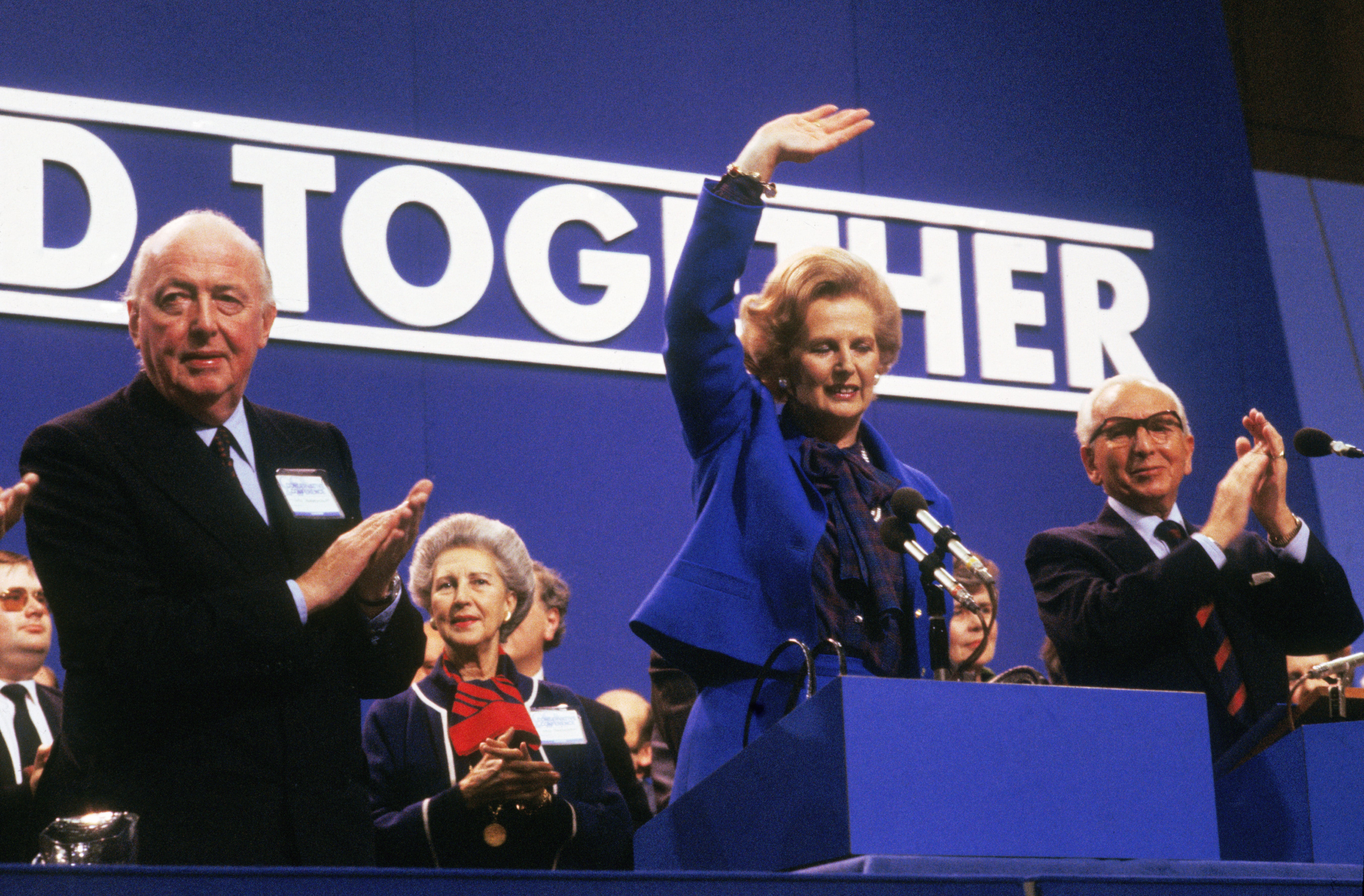
It was Arthur Balfour, an aloof amateur philosopher who served as Conservative prime minister during the Edwardian era, who gave us the best quote about party conferences: “I would as soon be guided by my valet as by the Conservative Party Conference.”
Alas! The Tory grassroots of today count for rather more than they did 120 years ago, and one shudders to imagine what Balfour would have made of the party’s “activists” (dread word) having any say at all in the selection of its leader, let alone the demands of such insolent bodies as the Conservative Democratic Organisation and the National Conservatives for complete control of the leadership and policy.
Rishi Sunak can’t be looking forward to the event – to be held this year in Manchester – any more than his distant predecessor would have done. Yet party conferences can, albeit not often, help to rejuvenate a stale government.
As the Conservative Party has often done, Sunak might take courage from Margaret Thatcher’s record. Back in 1986, she was in real trouble. Her main rival for the leadership, Michael Heseltine, had dramatically walked out of her cabinet halfway through a meeting. The economy was slowing, the party was behind in the polls, and the government was running out of momentum. So Thatcher ordered all of her senior ministers to come up with new ideas, and to bring them to conference, ready for the general election expected the following year.
Conference slogans are usually meaningless, but this time “The Next Steps Forward” provided the right mixture of strong leadership and more reforms, with its theme of unfinished business. It was a kind of alchemy, and it gave her party a third election victory on the trot in 1987. Sunak is trying to do something like that now – deliver a policy-led revival – but the contemporary version feels like a collection of small proposals with no particular theme. Beads without string, you might say.
The Thatcher era was something of a golden one for the Tories, because most years when they got together, there was a great deal to be grateful for – they were in power, and often looked fairly secure. She remains a talisman even now. Gyles Brandreth, celebrity and soon-to-be-elected Tory MP for Chester, captures this almost mystical effect in a diary entry about the 1991 meeting, just after her fall:
“It’s only the activists who sit through the debates. Everyone else is junketing, non-stop. MPs, ministers, candidates, party professionals, hacks, broadcasters, lobbyists, hangers-on, by the hundreds – moving from one indifferent reception to another. There’s a nice freemasonry among the prospective candidates ... On Wednesday, when Mrs T arrived on the platform [...] pandemonium broke out. She didn’t say anything: she just was, and for five minutes we stood and clapped and stamped our feet and roared. There were tears in the eyes. You couldn’t not be moved. It was wonderful.”
In return for such devotion, a party leader will (or will try to) send their followers away with fire in their bellies, and a new thrust for canvassing, recruitment and leafletting. Party conference speeches have given us some momentous moments, and some of the greatest oratory in history.
Conferences force party leaderships to up their game, and they can rise to the occasion. Thatcher thrilled delegates in Brighton in 1980 with “You turn if you want to. The lady’s not for turning!” Kinnock turned on the Militants in his own party in 1985: “You end up in the grotesque chaos of a Labour council hiring taxis to scuttle round a city handing out redundancy notices to its own workers.”
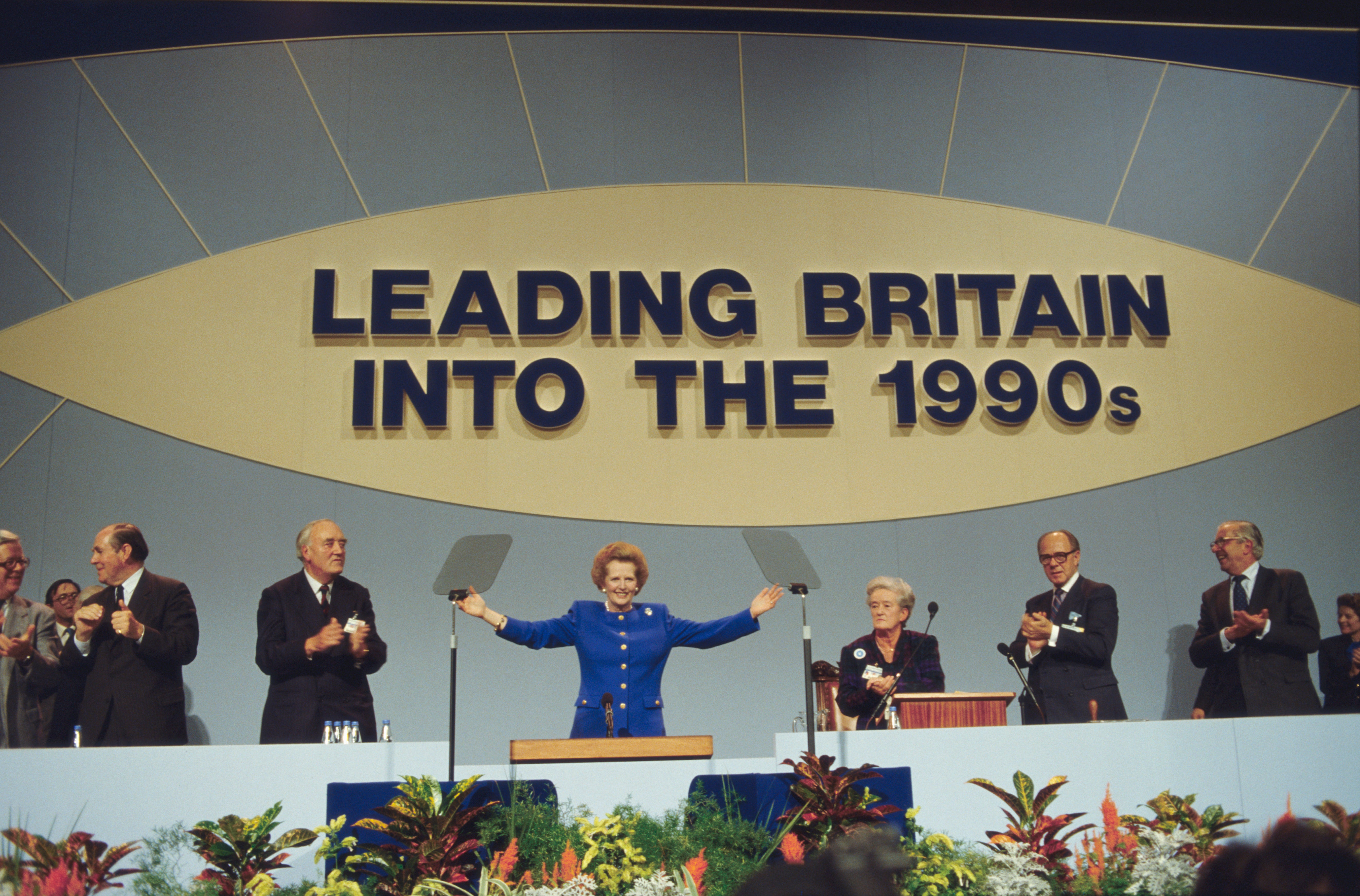
But it doesn’t always come off. Stage management can flop, as when the Tories decided to plonk Thatcher and her predecessor Ted Heath in Ikea chairs on stage. They looked like two pensioners who couldn’t bear to look at each other and couldn’t wait to get away. Which was true, but it didn’t inspire harmony.
Even leaders’ speeches that feel like a hit at the time can age badly – and quickly. A year ago, some in her circle, sequestered in the overheated bubble of the Birmingham International Conference Centre, allowed themselves to think that Liz Truss, as she took to the stage to the incongruous accompaniment of M People’s “Moving On Up”, had turned a corner. You may recall her oration: “Growth. GROWTH. G R O W T H!!!” You know what happened next. Her policies went. Then her chancellor. Then so did she.
Or take poor old Iain Duncan Smith, for example. He was the first leader to be part-selected by the membership, in 2001, and they were willing their favourite Eurosceptic to succeed – one of their own, you might say. He’d long suffered a habitual cough, which put him off when he faced Tony Blair at Prime Minister’s Questions. Partly as a result, his future as leader was openly in question. It was all getting a bit cruel.
His aides then had the smart idea of turning his embarrassing habit of having to clear the frog in his throat into an unlikely plus point. So at the 2003 conference in Blackpool, he declared, with a suitable crescendo: “To the prime minister, I say this: the quiet man is here to stay, and he's turning up the volume!”
The audience went berserk in a kind of frenzy of relief: IDS could do it! Yet in the end, everyone knew that he wasn’t going to turn the volume up, and there wasn’t much point in doing so because no one was listening anyway. Within a month, he’d lost a vote of confidence and was out.
The worst party conference speech? Easy: the series of calamities that beset Theresa May in Manchester in 2017. Makes you wince still, doesn’t it? The political background wasn’t promising in the first place, even before her backdrop began its rapid unscheduled disassembly. Over the previous six months, May had called and lost a snap election she’d pledged not to hold; lost her majority; had to sack her closest advisers; almost let Jeremy Corbyn into No 10; and failed to make much progress on Brexit. Her foreign secretary, Boris Johnson, adored by the party, was on manoeuvres.
No one now remembers what May had to say about “The British Dream”, but they do recall that whatever it was, she couldn’t, because her voice went. Her chancellor, Philip Hammond, handed her a lozenge; a prankster handed her a spoof P45. The magnetic letters fell from the board behind her, another compelling metaphor for a premiership that was disintegrating, just like the slogan: “Building a country that works for everyone”. One wag quipped: “It could have been worse: I thought the ‘o’ might fall off the word ‘country’.” They gave her a sympathetic ovation, but the plotting against her intensified.
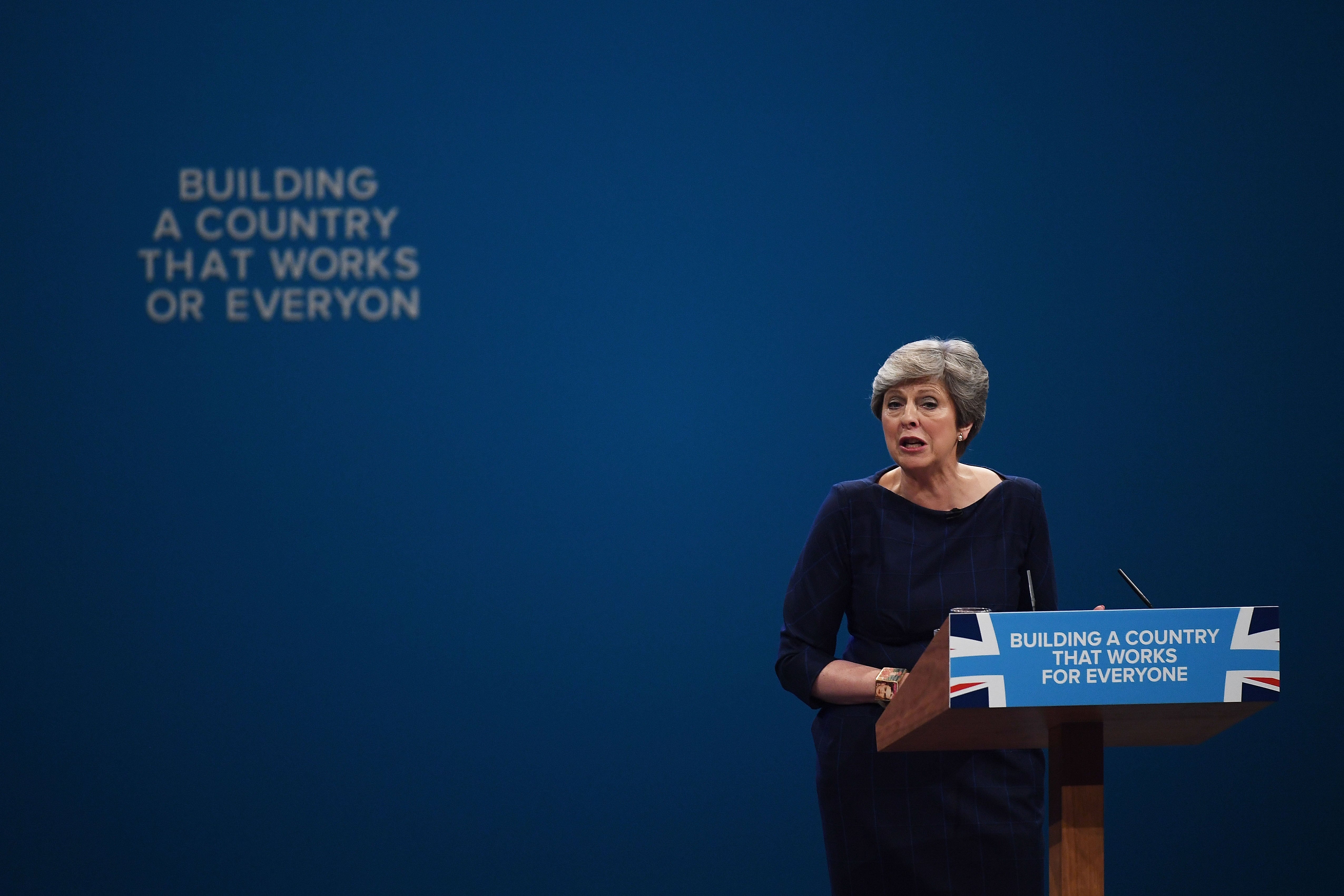
That was certainly, in cosmetic, presentational terms, the worst conference staged by a British political party, and terribly unlucky; but it’s the Labour Party that has a far more consistent record of disasters in terms of substance, and they have usually been entirely self-inflicted.
This is because, at its foundation, the party lumbered itself with the notion – and let us once again recall the ancient wisdom of AJ Balfour – that ponderous, lumbering, fractious, sentimental “conference” (the definite article was normally omitted) was the ideal, supreme policymaking body of the party. For much of its history, inconvenient resolutions – “pickled together”, as Kinnock put it – were concocted through a tortuous process called “compositing”, and passed without much realism impinging on proceedings. In government, the more fanciful proposals could be safely ignored; in opposition, the party tends towards introversion, internecine warfare, and clowning.
Conferences can be entertaining, and every generation of politicians throws up a few – a very few – who can inspire, amuse and energise in equal measure, aside from the leader (who doesn’t always fulfil that function, and can find themselves, to their discomfiture, outshone). These days, for example, you’d probably look forward to Angela Rayner’s crowd-pleasing “turn” rather than Keir Starmer’s more earnest effort.
For most of their uneasy partnership, it was Gordon Brown who was the better, more natural, more authentic speaker than Blair, while John Prescott and Mo Mowlam were always the ones who were greeted with the most affection. In his day, Tony Benn could manipulate his socialist congregation with quasi-religious fervour, and pretty shamelessly. He gave them exactly what they wanted to hear – which was a promise to afford them control of “their” party, similar to what the Tory populist right demand today.
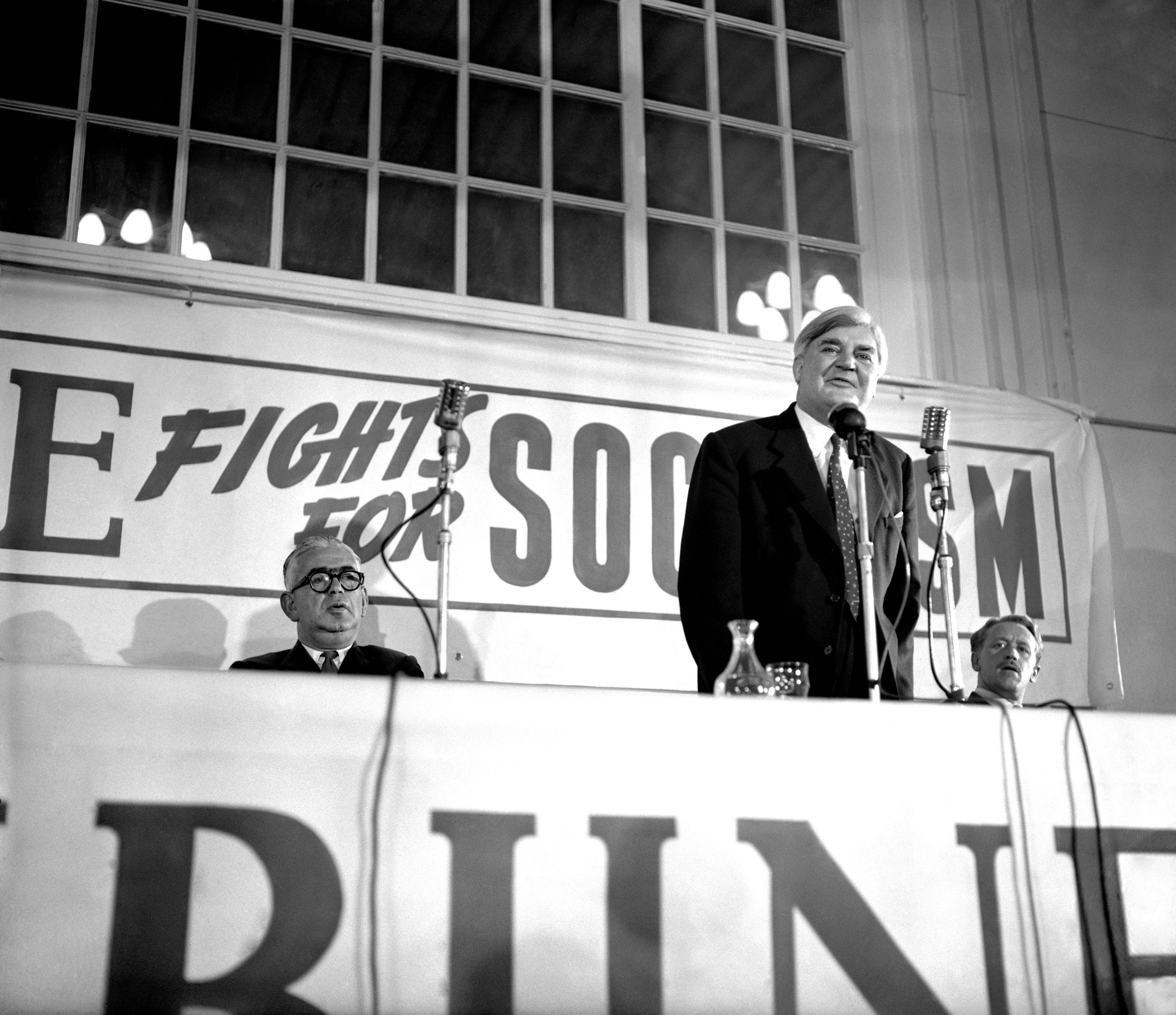
Further back, Nye Bevan, George Brown and Quentin Hogg (Lord Hailsham) did the business. Sometimes, popular “big beasts” would turn up to cause trouble, and pointedly speak “from the floor” as though they were ordinary delegates – a technique used by Enoch Powell and Norman Tebbit. Johnson would be another example, capable of inflicting disruption or galvanising unity on a whim. It will be interesting to see what kind of profile Banquo’s ghost adopts in the coming days.
One of the most successful “stump” speakers was always Heseltine, who easily overshadowed his leaders – John Major and even Thatcher. He’d do anything for a laugh. Back in the 1970s, keen to make his name, he hit upon the bizarre metaphor of the Labour Party as a one-legged army, marching “Left, left... left, left”. He then threw in some more nonsense about the red flag, and they gave him a rapturous standing ovation, something that became a regular conference fixture. By the 1990s, when he teased Labour’s enthusiasm for “neoclassical endogenous growth theory”, he’d refined his act a bit.
Someone else who could do that was Ann Widdecombe. It was she who, through sheer ability and determination – she suffered misogyny to an extent that is unimaginable today – managed to secure the post of shadow health secretary under William Hague’s doomed leadership, and became a star. Another conference “darling”, she decided that her forthright, direct style would be best suited to getting closer to the audience, and so she decided to dump the usual lectern and prowl about the stage – no autocue; not even notes.
It was all from memory: “I had a speech structure, but I did not learn it, because I knew, if I learnt it and I forgot it, I wouldn’t be able to move fluently. I merely read it about 12 times, slowly... I practised roaming around so that I didn’t fall off the edge. You’re looking out at them – you’re not looking down. I didn’t rehearse the speech. I did rehearse movement and all the rest of it,” she later recalled.
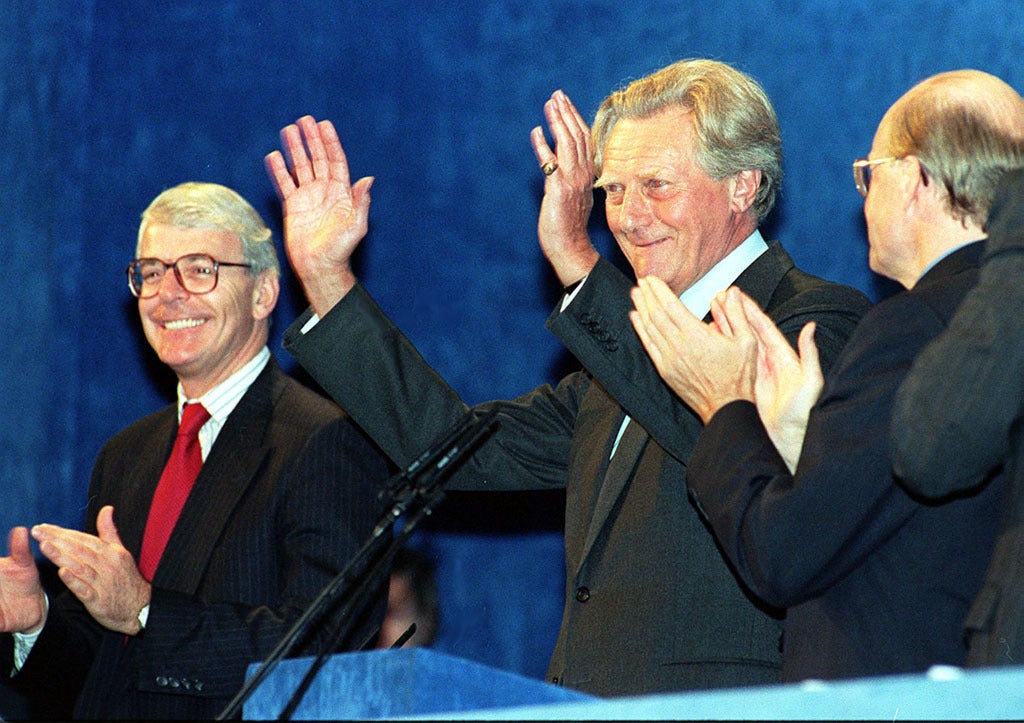
“Everyone went gaga,” as she put it. That was in 1998, and few have been brave enough to emulate her since. One who did was Ed “Hell, yeah” Miliband. He was never short of self-confidence, and his 2014 keynote address in Manchester went well – until someone noticed he had completely forgotten to mention the economy, in the last conference speech before the general election. The Tories seized on it, and “Deal with the deficit? Ed Miliband can't even remember it” was the title of an unkind attack ad.
Cameron was lagging behind the far more experienced David Davis in the race to succeed Michael Howard following the 2005 general election, and to thus take forward the task of rebuilding the party. Davis’s and Cameron’s respective performances at conference were to transform their standing. Davis was never a prime platform orator, and fell flat. Cameron took a risk, delivering his speech without notes – and it paid off.
The conference matters greatly to wannabe leaders, and never more so than six decades ago, when the Conservatives just decided to let rip. The chaotic Tory conference of 1963 in Blackpool (in those days, the main parties were kind enough to give the northern town their custom) was turned from the usual staid affair into a rather vulgar American-style convention.
To understand the long-ago drama, try putting it in contemporary terms: Sunak, the prime minister, is taken ill during a cabinet meeting, and shortly afterwards tells the King and his closest colleagues of his intention to quit. The message is read out at the Tory conference by one of his favourites, and all hell breaks loose. Each and every contender – let’s say Suella Braverman, Penny Mordaunt, Kemi Badenoch, James Cleverly, even Jeremy Hunt and Michael Gove – starts politicking, their fans canvass for them, and their keynote speeches become auditions in a kind of beauty contest.
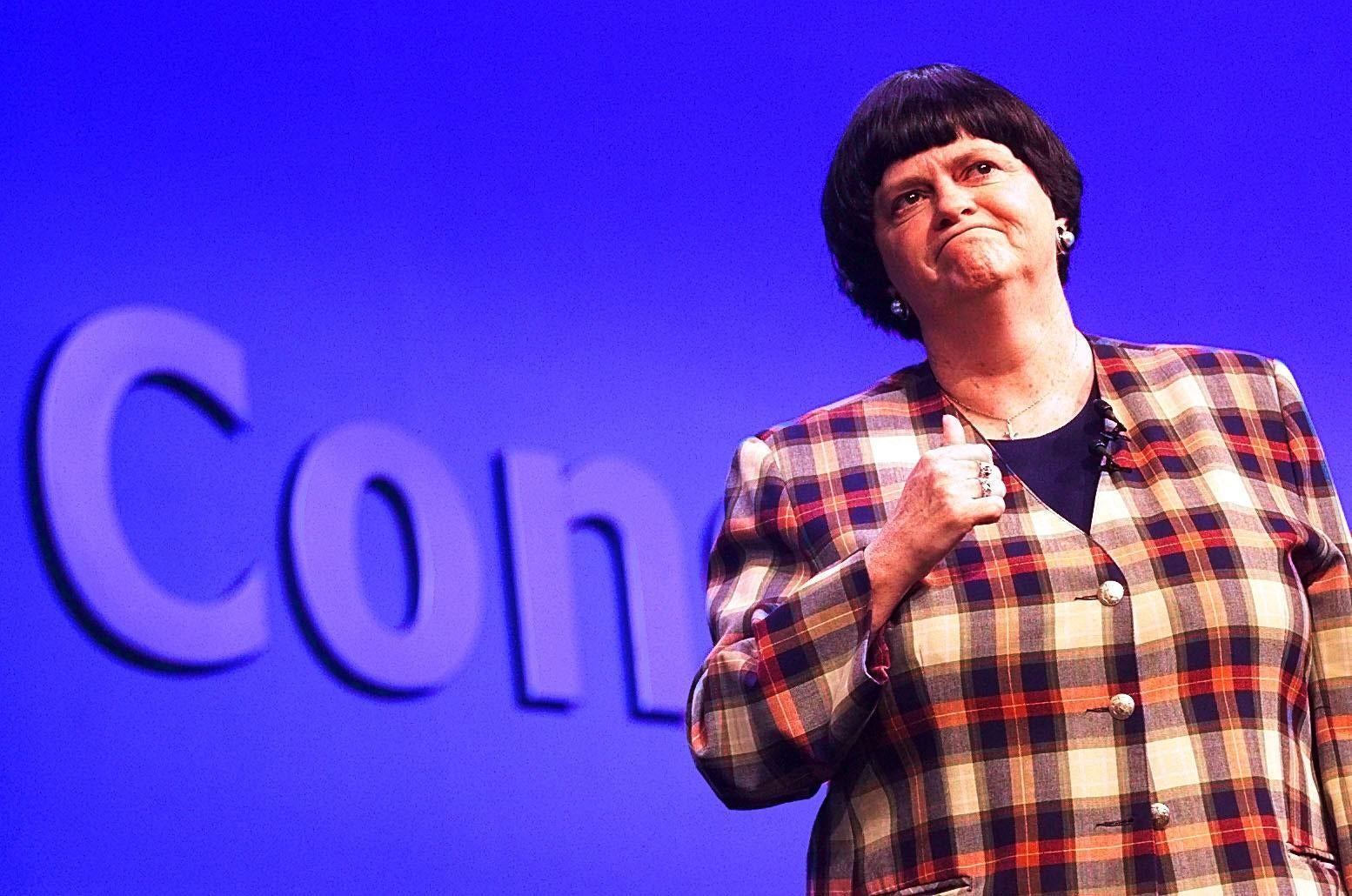
Such was the case when the then prime minister, Harold Macmillan, fell ill with prostate trouble and couldn’t attend. Supermac, a hypochondriac in fear of his life, decided he couldn’t go on: he lived for another 23 years, eventually heading for the great conference hall in the sky aged 92. The man who “should” have succeeded him, Rab Butler, gave a characteristically flabby oration, and the leadership slipped away from his grasp. His well-known distaste for the grassroots may have shown through. As his biographer noted, “If he had had his successes down the years at them, the conferences themselves ranked probably, at best, in his mind, as necessary tribal tribulations to be endured with as much patience and fortitude as one could muster.”
Though the dynamics of conferences haven’t changed much over the decades, they certainly look very different. Photos and film of the events before about the 1980s reveal a lost world of supposedly glamorous and powerful leaders sharing the stage with a variety of random, unphotogenic apparatchiks, invariably old, male and stale, smoking Players No 6, distracted and glum-looking, picking their noses just as the leader pleas for them to fight for the party he loves. Now it’s clean backgrounds, vibrant or pastel according to fashion; strong, if vacuous, branding (New Labour, New Britain); spin, rigid control, “sincerity machine” autocues, motivational videos, and megastar guests.
Bill Clinton, Nelson Mandela and Bono helped give Blair-era events their razzmatazz: it makes a change, surely, to bump into President Clinton, pop into the McDonalds in Blackpool, and chew over the Third Way. We may credit the professionalism of Peter Mandelson for that particular transformation, and it’s fair to say he proved that presentation could make a difference, even if it was sometimes a triumph over substance, as he admitted.
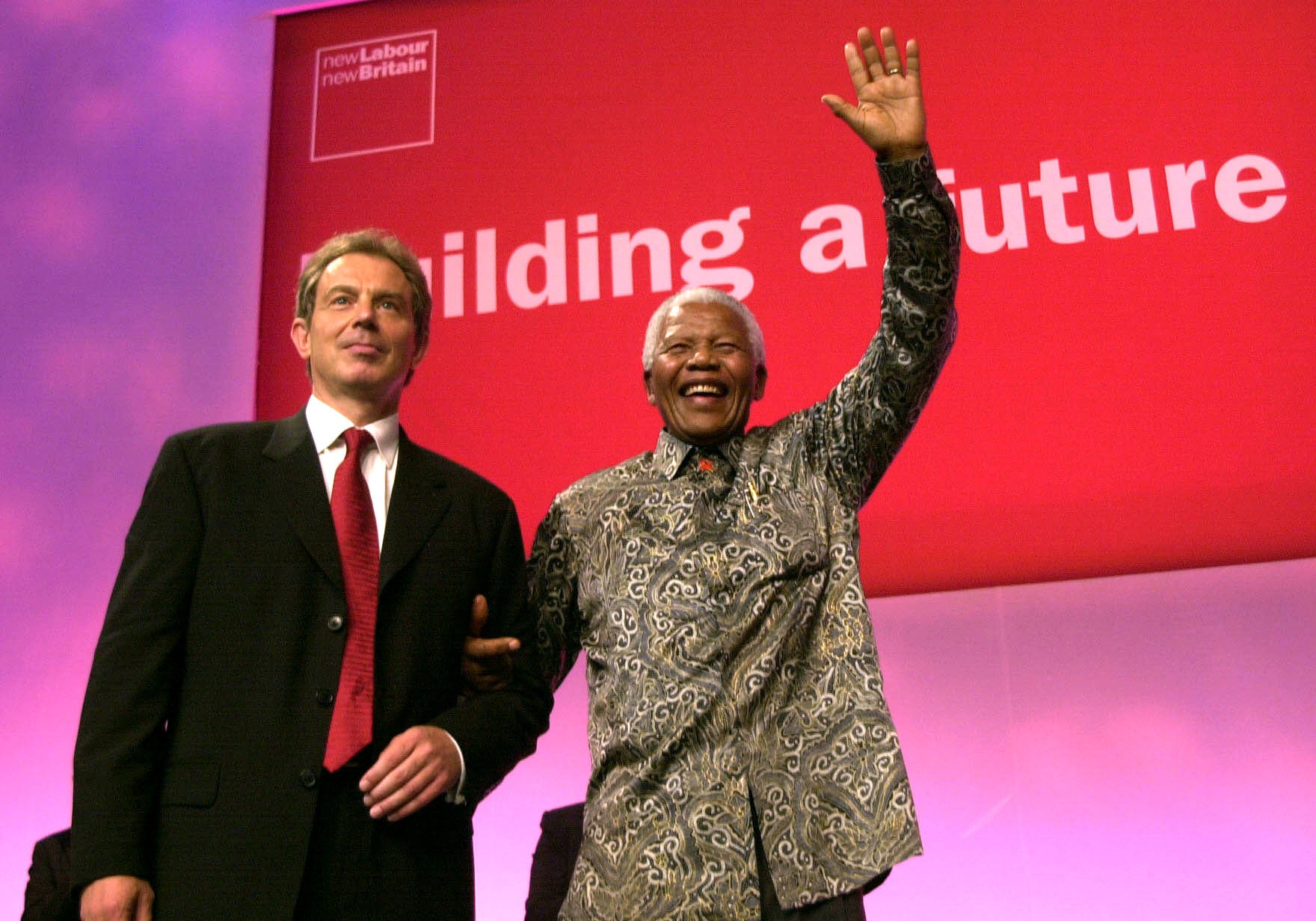
Party conferences matter, then, and it is sometimes forgotten how much. In 1940, the then Labour leader, Clement Attlee, only agreed to lead his party into the wartime coalition under Winston Churchill after consulting the Labour national executive committee, then meeting at the party conference in Bournemouth.
Conferences can refocus governments, or mercilessly expose incompetence. Conferences can make and break leaders. Sometimes a politician can survive a botched speech or a grassroots rebellion – but only provided that the people who come to these events respect or love them. Jeremy Corbyn was so ill-suited to the task that he accidentally read out the instruction “strong message here” in his first leader’s speech. No matter. But he was rare in that respect.
The most electorally successful leaders since the Second World War – Harold Wilson, Thatcher, Blair, and arguably Johnson – had that showbiz star quality that could both command a conference and mesmerise a nation. Their speeches were crafted for the hall, but also for the far wider audiences beyond, on radio, TV, and more recently social media. The conferences gave them the platform, and they made the most of it. They could “cut through”.
We shall see how far that is true of Starmer and Sunak in the coming days.





Join our commenting forum
Join thought-provoking conversations, follow other Independent readers and see their replies
Comments